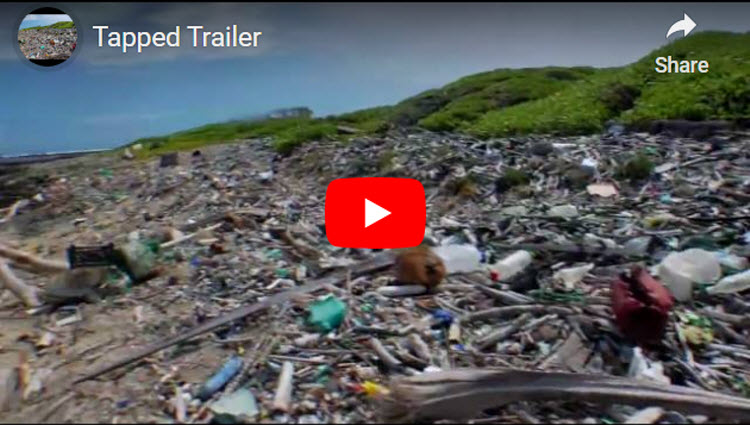Tapped Trailer – film
 American consumers are drinking more bottled water every year, in part because they think it is somehow safer than tap water. They collectively spend hundreds or thousands of dollars more per gallon for water in a plastic bottle than they would for the H20 flowing from their taps. Tap water is generally just as safe, clean, and healthy as bottled water—in many cases even more so. By taking back the tap, you can save money, protect your health, and help prevent environmental and social problems as well.
American consumers are drinking more bottled water every year, in part because they think it is somehow safer than tap water. They collectively spend hundreds or thousands of dollars more per gallon for water in a plastic bottle than they would for the H20 flowing from their taps. Tap water is generally just as safe, clean, and healthy as bottled water—in many cases even more so. By taking back the tap, you can save money, protect your health, and help prevent environmental and social problems as well.
Health Concerns / FDA
The FDA states that it allows the bottle water manufacturers to monitor their test for water contaminates. If it travels across state lines, only a portion of the water is ever tested, leaving a question to anyone who consumes bottled water; What's in it? The inadequacy of bottled water regulations was documented by the National Resources Defense Council which tested 1,000 bottles from 103 brands and found bacteria, carcinogens, and other chemicals in a significant number of the products.2Some of these contaminants can be traced to the water source, others are byproducts of the purification process, and still others leach from the plastic bottle.Being Regulated and being Tested
The FDA will state that they regulate the manufacturing of bottled water industry, however the key is testing it for contaminates. They rely upon the manufacturers to report their own water test.Water Processing is Huge Hype While Impacting Health and Environment
"The inadequacy of bottled water regulations was documented by the National Resources Defense Council which tested 1,000 bottles from 103 brands and found bacteria, carcinogens, and other chemicals in a significant number of the products" Read more on bottled water at: aquatechnology
Impact on oceans
The quantity of small plastic fragments floating in the north-east Pacific Ocean has increased a hundred fold over the past 40 years. "An obvious concern is that this micro-material could be ingested by marine organisms, but the Scripps team has noted another, perhaps unexpected, consequence."
Take Action
- Stop purchasing bottled water products
- Purchase a water filtration device - portable, sink top or under the sink
- Tell others about the health and environmental issues of which plastic impacts
- Support Tapped and purchase their DVD
References: http://www.fda.gov/Food/ResourcesForYou/Consumers/ucm046894.htm http://www.sustainabletable.org/issues/water/ Bisphenol A(BPA) can be a concern for some bottles made of polycarbonate (which shares resin identification code 7 with other plastics). High temperatures and bleaching are believed to increase leaching of BPA. Several countries have banned the use of plastics containing BPA used for water and other food items. ref: Wiki